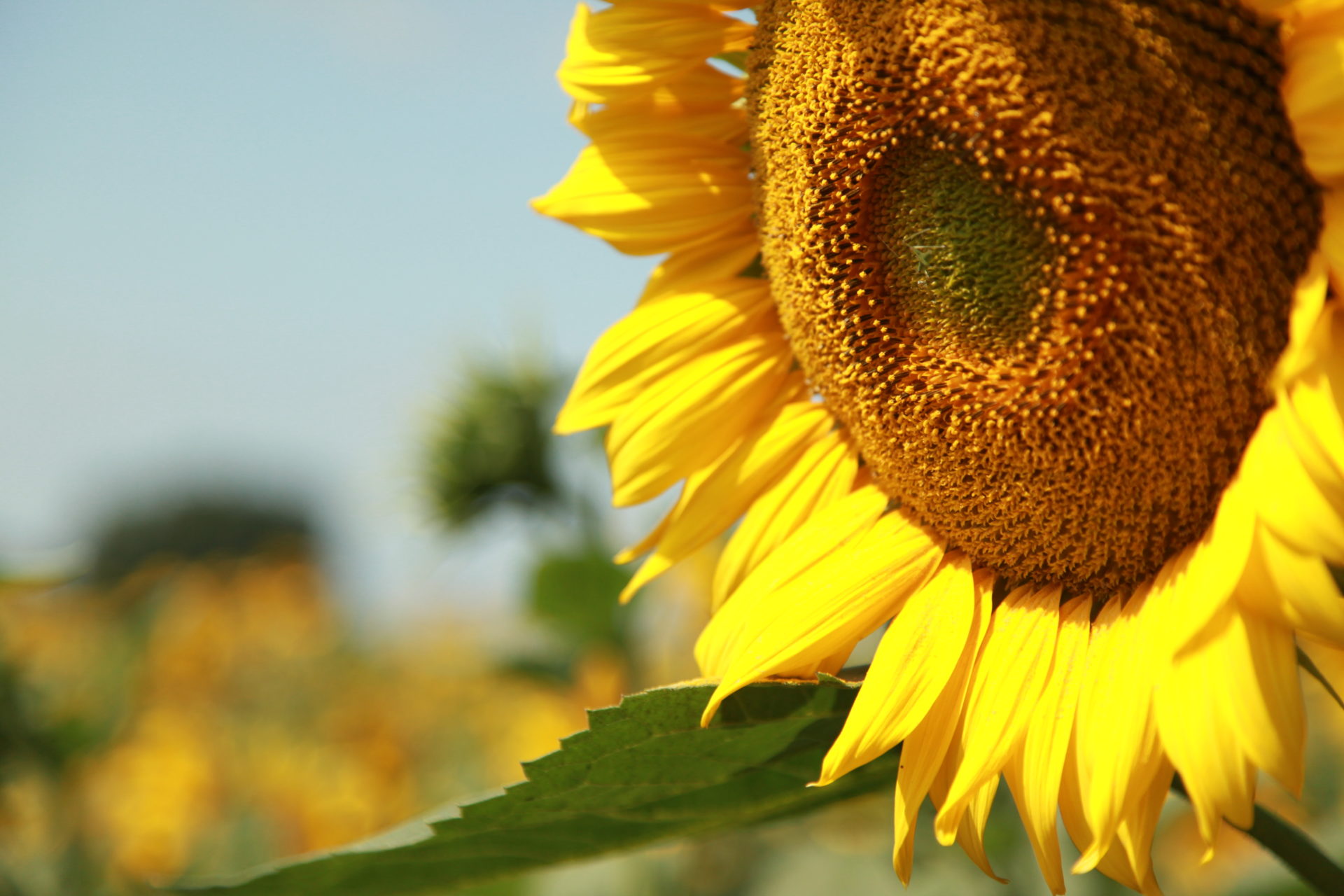Plum Village’s Happy Farm
By Stuart Watson
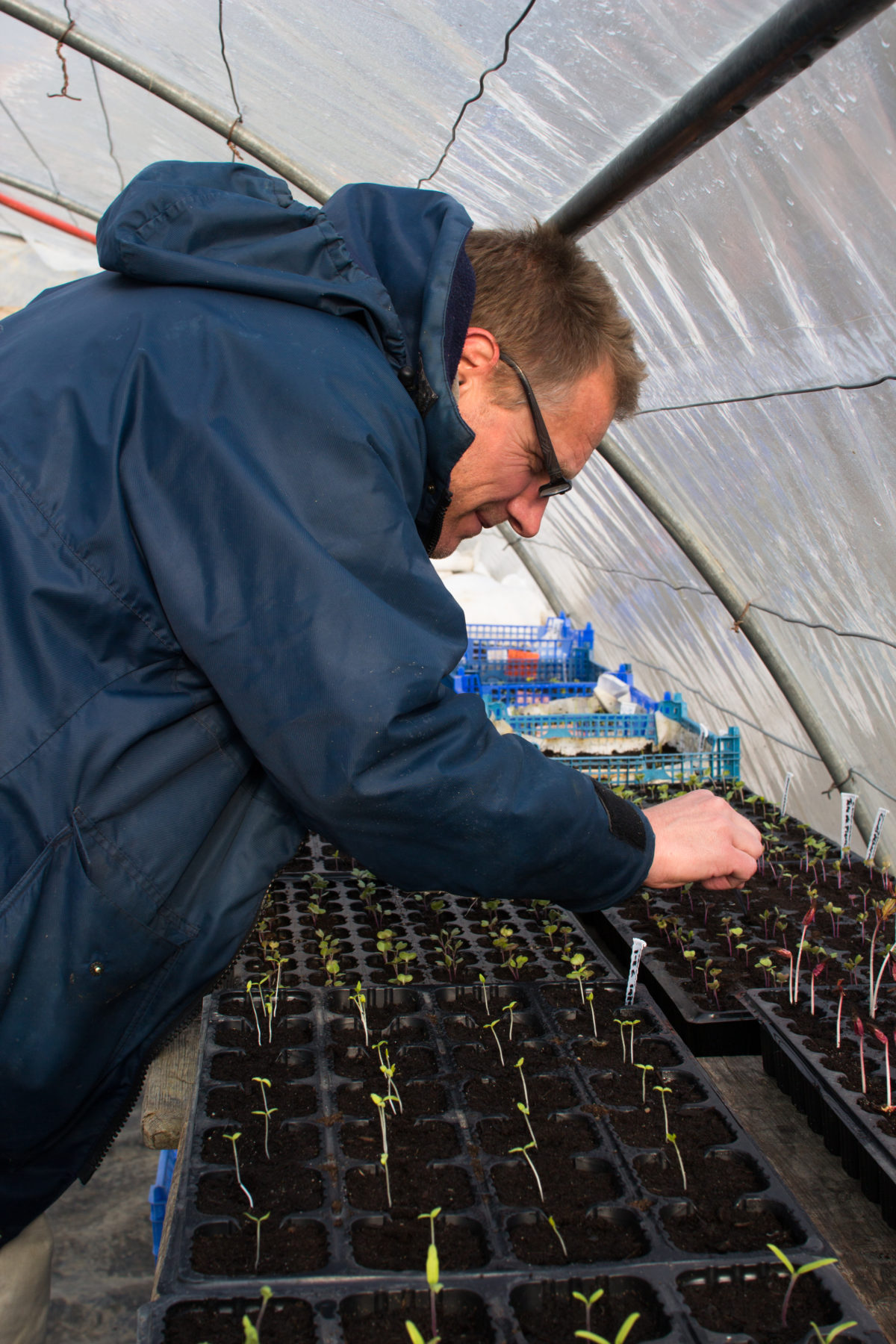
In November of 2012, two lay friends joined me in Upper Hamlet, Plum Village, to begin a yearlong stay and to work on the Happy Farm project. Keith Smith, a disarmingly friendly mathematician from Glasgow, was looking for a change in direction that had meditation and ecology at its core.
Plum Village’s Happy Farm
By Stuart Watson

In November of 2012, two lay friends joined me in Upper Hamlet, Plum Village, to begin a yearlong stay and to work on the Happy Farm project. Keith Smith, a disarmingly friendly mathematician from Glasgow, was looking for a change in direction that had meditation and ecology at its core. Daniel Dermitzel, an organic farmer and educator from Kansas City, had seen the challenges associated with making a living as a small farmer. The Happy Farm project was an invitation for all of us to integrate mindfulness practice with farming.
Keith, Daniel, and I are becoming known as the three musketeers. This term was coined during the recent Tet (Chinese New Year) celebrations by a monk called Phap Lieu. I’m not yet sure what similarities Phap Lieu sees between us and the three musketeers (possibly only the number of us), but I must admit that I like the comparison.
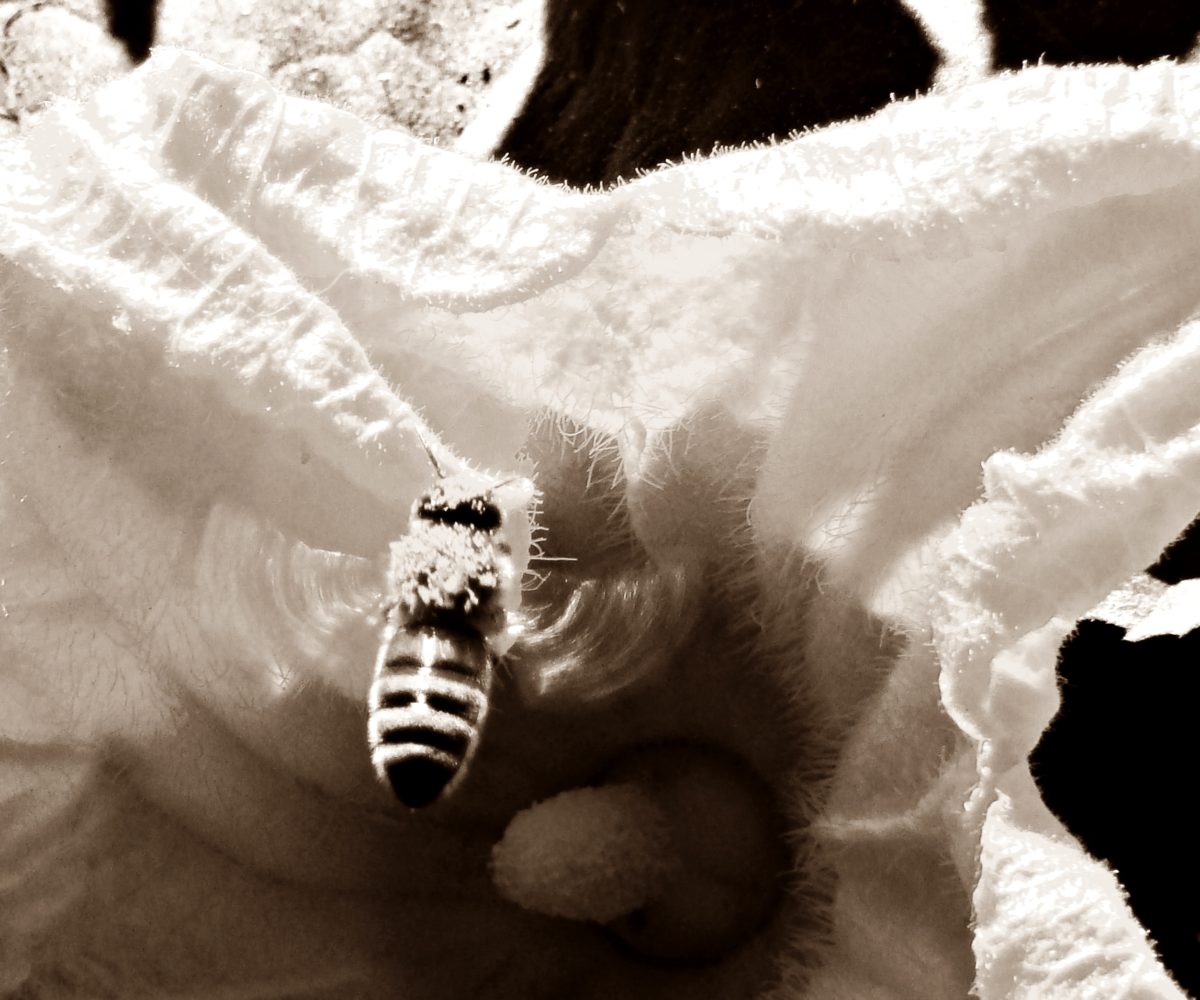
What Am I Harvesting?
Phap Lieu was the host for an oracle reading one morning during the Tet celebrations. In Plum Village, the tradition of oracle reading makes use of a very rich Vietnamese poem, “The Tale of Kieu” by Nguyen Du, which is written onto cards in couplets. The brothers and sisters have also written lines from Victor Hugo for French speakers and lines from Shakespeare for English speakers. These cards are placed in their respective bells, one for the Vietnamese text, one for Victor Hugo, and one for Shakespeare.
At the oracle reading, the Sangha gathers in the hall, and Thay or a senior monastic invites someone to come forward and ask the oracle a question. That person proceeds to the front of the hall and touches the Earth. Then the person chooses one of the three bells, kneels in front of it, places a hand on the bell, takes three breaths, and allows the question to arise. The person selects one card from the bell to present to Thay. Thay reads what is written on the card before offering an answer to the question, inspired largely by the lines from the card.
Brother Phap Lieu had previously told the three of us that we would be invited to come up to ask a question. My response was to shuffle around nervously and to look about the hall. I spotted Daniel and couldn’t help smiling to see that he had responded in the same fashion. Our indecision culminated in some encouragement from the monastic brothers to proceed to the front of the hall. One by one, we stood up, joined our palms, and made our way to the front. We touched the Earth and presented ourselves before the Sangha. Then Daniel found himself kneeling in front of Thay, microphone in hand, preparing to ask a question.
From the silence of the hall the question arose: “As farmers, how can we remain in the present moment, when farming is all about a harvest in the future?” Warm laughter arose from the Sangha, and Thay, too, seemed enthused by the question. He proceeded to give a wonderful response.
Thay shared that we are planting seeds every moment in the ground of our mind. He encouraged us to live in such a way that we plant positive seeds in our minds throughout each day. Practicing like this, he assured, would lead to a wonderful internal blossoming of peace and happiness. “There is no way to harvest, harvest is the way,” Thay shared, a line that touched us all deeply.
Since the oracle reading, I have been practicing with these words. What am I harvesting right now? What is available to me in this moment that can nourish and fulfill me? The fresh air I breathe, the warmth of the sun, the presence of my friends, and the love growing in my heart are all fruits of the present. I don’t need to wait to find fulfillment. There is so much to harvest in every moment, if I can just recognise it.
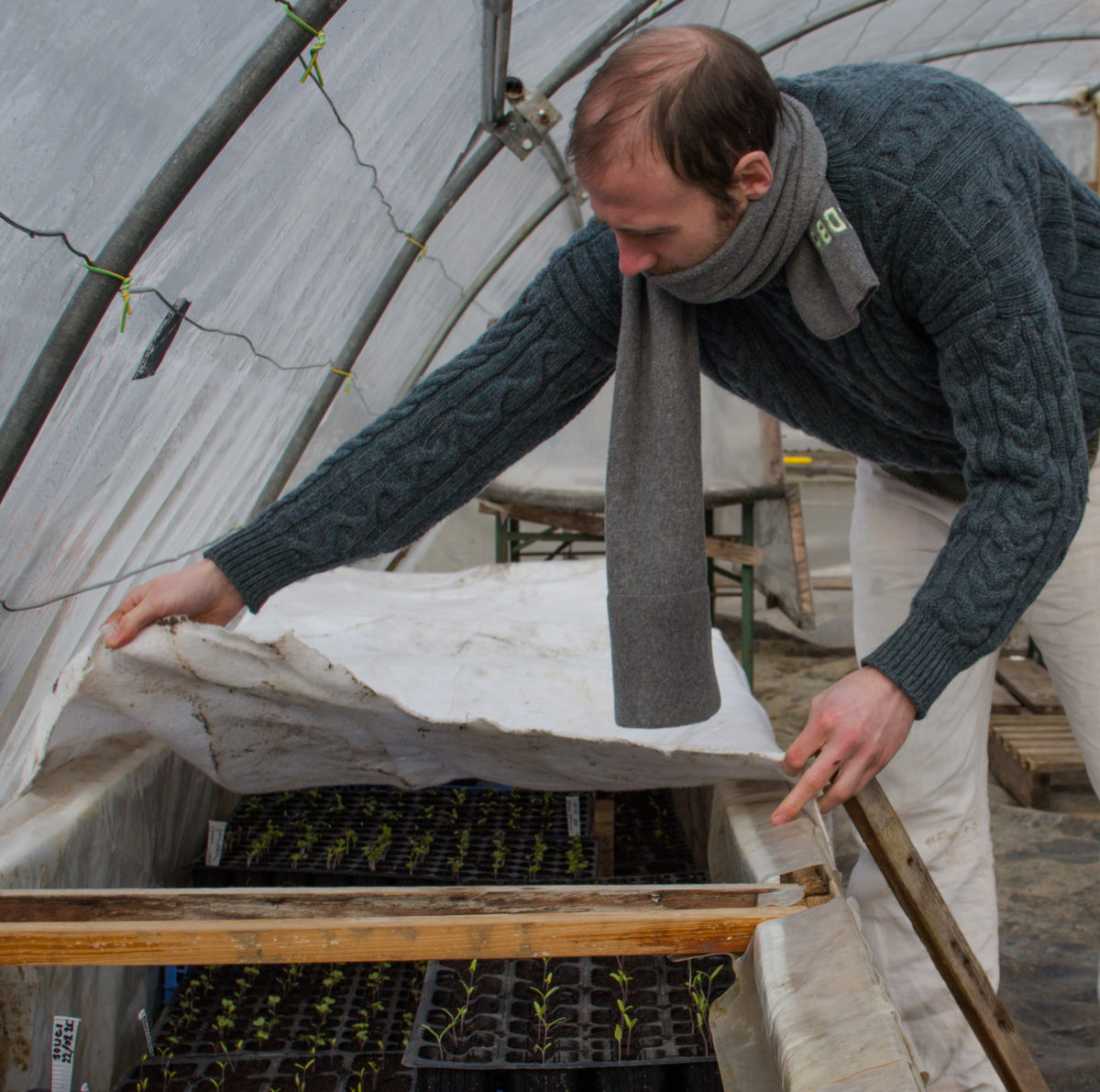
Cultivating Happiness
I have lived in Plum Village for the past five years. I’ve been involved in many roles here—I was shopper for Upper Hamlet for two years, I’m often involved in cooking (I worked as a chef before coming here), and I’ve been gardening for the past three years. While working on the small organic garden, I started dis- cussing with the monastics the possibility of increasing its scale. The brothers had been thinking of this for a while, so we started to sow seeds for this to become a reality. Two years ago I went on a permaculture course in the UK, and from that experience emerged the design for our garden. We named it the Happy Farm project to capture the essence and aspiration of the work we are doing, which is to cultivate happiness.
There are several ways in which we nurture happiness here. For me, a central part of cultivating happiness is to be present for my suffering. To work on the Happy Farm does not mean I have to be happy all the time. It means to practice cultivating happiness inside by honouring the function and value of suffering. Prior to coming here, I suffered from anxiety and depression, so a lot of my energy has been directed towards calming my mind, nourishing myself, recognising mental formations, and exposing my suffering to the healing light of mindfulness. Living in a community is a great cure for social anxiety; it is not possible to isolate myself as I have in the past. I am going through a process of learning how to be with people, how to develop my social skills, and how to take care of the painful energies that arise in me when I am around others.
I am learning that happiness is composed of suffering that has been well taken care of. By recognising and embracing the suffering in myself, I experience transformation. When I practice in this way, the pain I experience soon transforms, leaving me feeling humble, warm, and looking through softer, more compassionate eyes. I can once again see how beautiful the surroundings are and how lucky I am to work with such inspiring people. It feels nice to be me again!
So, living in Upper Hamlet and being part of this project is very good for my growth, transformation, and development as a caring human being. A community offers so much fun, friendship, music, play, learning, time to spend in nature, spirituality, support, service, etc., that my mind continually receives deep nourishment, and time spent here is rewarding and enjoyable. I feel fortunate to be living and working within a practice centre that supports my aspiration to live a simple, healthy, meaningful life.
Food, Beauty, and Meaning
As well as the inner process of cultivating the mind, we aim to cultivate happiness by growing organic food for the Upper Hamlet and Son Ha* communities. I read that one of the most effective ways to care for Mother Earth is to grow your own food. I have much worry and concern about the damage that conventional farming and food transportation cause the environment. Recently I heard that food is flown, shipped, or trucked an average of 1500 miles before it reaches our plate. The prospect of producing healthy, organic food less than one mile from the bowls of the appreciative monks and lay friends, who will enjoy this healthy food in mindfulness, brings joy. I’m so happy to be involved in a project that will produce food in a way that embodies the qualities of care, love, and reverence for the Earth.
Plum Village has had an organic garden for many years, but this is the first project large enough to be called a farm: six acres. In the first year we’ll use around half an acre for intensive organic vegetable production. It will be made up of thirty-six raised beds, each 115 feet long and four feet wide. We do hope to expand, in time, with a view to increasing the annual vegetable area, adding sections for soft fruit, fruit and nut tree orchards, and possibly forest gardens. In the first year, though, there is so much to do to establish the farm, and so many unknowns, that we decided to start small and allow it to grow slowly. We will try to grow almost every vegetable that is suitable for this climate: peppers, eggplant, zucchini, okra, potatoes, garlic, onions, spinach, carrots, beans, peas, pumpkins, tomatillos, salad mix, cabbage, turnips, beets, and more.
While we hope to grow a lot of food, we wish also to create a farm which, through its beauty, attracts many visitors. The area where we live and work is so beautiful. Every morning I step out of my room and see the sun bathing the gentle undulation of the Dordogne countryside in light. Every evening I see the sun setting beside a distant chateau. In spring and summer, Upper Hamlet is host to many beautiful butterflies. We hope the Happy Farm’s herbs and flowers establish a haven for all sorts of wildlife, creating an environment that is friendly to bees and other beneficial insects, as well as the butterflies. Our aspiration is that many people will come to the farm to spend time and to be nourished by the beauty of the surrounds and the work being done. It is very healing to be in nature and to see organic vegetables growing. The healing and happiness of those who visit and work on the farm is important. It is a yield, an invaluable harvest.
Nourished by the presence of bees, butterflies, and people, the Happy Farm project aims to be educational in nature, as well. We want to offer young men the chance to come to Plum Village to practice and work on the project for one year. (Because the Happy Farm project is in Upper Hamlet, which is where monks and laymen stay, we regret that we are not able to invite women to join the project at the moment. Our hope is that this will be a pilot project which the sisters’ hamlet will soon emulate.) During this time they will have the opportunity to participate in community life and deepen their meditation practice with the support of the monks, nuns, and laypeople of Plum Village. They also will have the chance to experience a full growing season in the wonderful surroundings of Upper Hamlet. Many young people around the world are struggling to find meaning in their lives right now. The Happy Farm will offer young people the chance to find meaning through community, organic growing, and spirituality.
Finally, we hope that visitors to our community will learn enough to feel inspired to grow some of their own food at home.
We will do our best to share our knowledge with those who visit, and to support the growth of organic home gardening. Addition- ally, we want to learn from those who come here with knowledge and skills in organic farming. In fact, this project would not be happening if it were not for the offerings of many visiting lay friends who have worked and shared their knowledge. Thank you to all who have contributed so far.It is the end of February as I write this. Despite it being very cold, the first seedlings of the season have sprouted, thanks to the aid of our heated germination chamber and greenhouse. A glimpse of the first fragile plants creates joy and a sense of wonder; come July, these tiny, two-leaved plants (assuming all goes well!) will be producing handfuls of large, red tomatoes.
But, as Thay shared, there is no need to wait until July to enjoy a harvest. May I recognise and enjoy the rich harvest available in every moment.
If you are interested in working on the Happy Farm or supporting the project financially, please contact the author via the “Plum Village Happy Farm” Facebook page.
* Son Ha is a small monastery about ten minutes’ walk from Upper Hamlet, where twenty monks live and practice. It is self-contained in that the residents have their meals and daily schedule there, but it is part of the Upper Hamlet community.
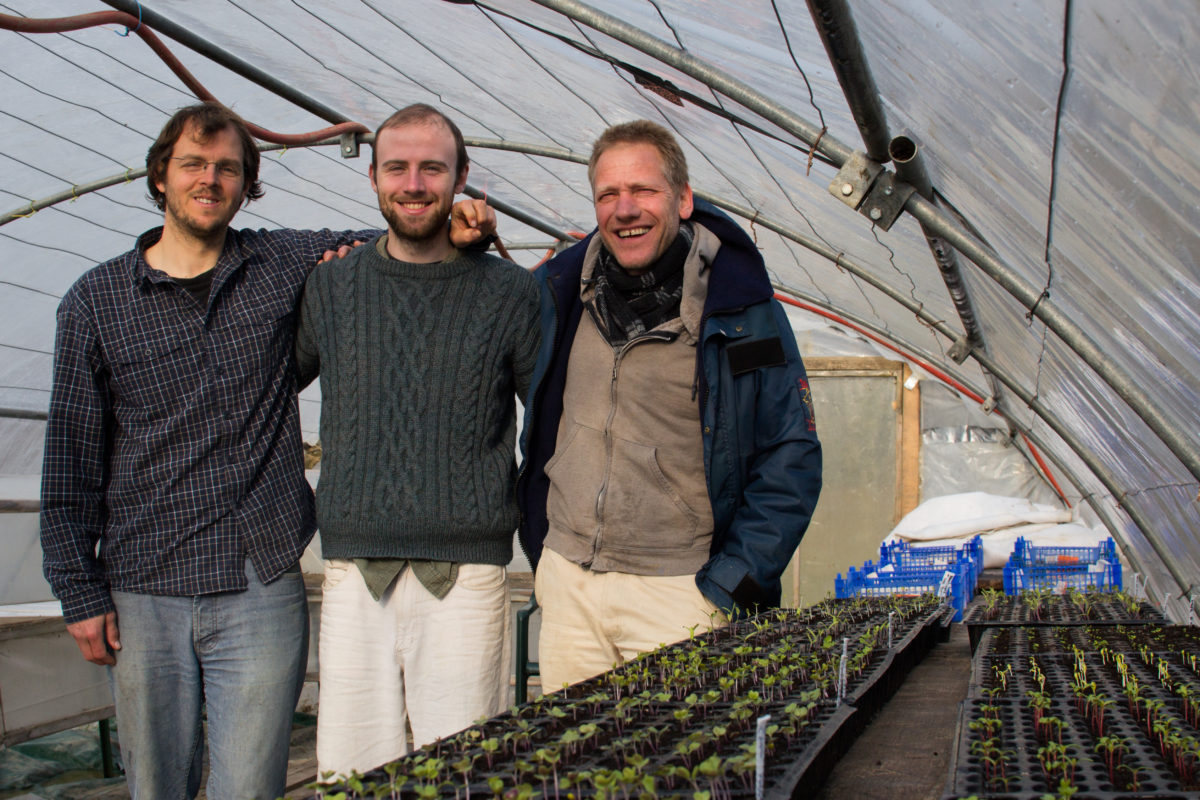
Stuart Watson, True Path of Loving Kindness, comes from Edinburgh, Scotland, and has lived in Upper Hamlet for the past five years as a lay resident. He ordained into the Order of Interbeing in 2009. His aspiration is to stay in Plum Village for the next few years, to be as present for life as he can be, and to establish the Happy Farm. He is pictured above (far left) with Keith Smith and Daniel Dermitzel.

